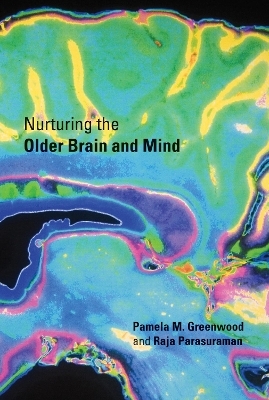
Nurturing the Older Brain and Mind
Seiten
2012
MIT Press (Verlag)
978-0-262-01714-5 (ISBN)
MIT Press (Verlag)
978-0-262-01714-5 (ISBN)
- Titel ist leider vergriffen;
keine Neuauflage - Artikel merken
Two noted researchers explain scientific evidence that shows why certain experiential and lifestyle factors may promote and maintain cognitive vitality in older adults.
Although our physical abilities clearly decline as we age, cognitive decline in healthy old age is neither universal nor inevitable. In Nurturing the Older Brain, Pamela Greenwood and Raja Parasuraman show that scientific research does not support the popular notion of the inexorable and progressive effects of cognitive aging in all older adults. They report that many adults maintain a high level of cognitive function into old age and that certain experiential and lifestyle factors-including education, exercise, diet, and opportunities for new learning-contribute to the preservation of cognitive abilities.
Many popular accounts draw similar conclusions and give similar lifestyle advice but lack supporting scientific evidence. Greenwood and Parasuraman offer a comprehensive review of research on cognitive and brain aging. They show that even the aged brain remains capable of plasticity-the ability to adapt to and benefit from experience-and they summarize evidence that brain plasticity is heightened by certain types of cognitive training, by aerobic exercise, and by certain diets. They also report on the somewhat controversial use of estrogen and cognition-enhancing drugs, on environmental adaptations (including "virtual assistants") that help older adults "age in place," and on genetic factors in cognitive aging.
The past twenty years of research points to ways that older adults can lead rich and cognitively vital lives. As millions of baby boomers head toward old age, Greenwood and Parasuraman's accessible book could not be more timely.
Although our physical abilities clearly decline as we age, cognitive decline in healthy old age is neither universal nor inevitable. In Nurturing the Older Brain, Pamela Greenwood and Raja Parasuraman show that scientific research does not support the popular notion of the inexorable and progressive effects of cognitive aging in all older adults. They report that many adults maintain a high level of cognitive function into old age and that certain experiential and lifestyle factors-including education, exercise, diet, and opportunities for new learning-contribute to the preservation of cognitive abilities.
Many popular accounts draw similar conclusions and give similar lifestyle advice but lack supporting scientific evidence. Greenwood and Parasuraman offer a comprehensive review of research on cognitive and brain aging. They show that even the aged brain remains capable of plasticity-the ability to adapt to and benefit from experience-and they summarize evidence that brain plasticity is heightened by certain types of cognitive training, by aerobic exercise, and by certain diets. They also report on the somewhat controversial use of estrogen and cognition-enhancing drugs, on environmental adaptations (including "virtual assistants") that help older adults "age in place," and on genetic factors in cognitive aging.
The past twenty years of research points to ways that older adults can lead rich and cognitively vital lives. As millions of baby boomers head toward old age, Greenwood and Parasuraman's accessible book could not be more timely.
Pamela M. Greenwood is Associate Professor in the Psychology Department at George Mason University. Raja Parasuraman is University Professor in the Psychology Department at George Mason University. He is the editor of The Attentive Brain (MIT Press, 1998).
| Reihe/Serie | Nurturing the Older Brain and Mind |
|---|---|
| Zusatzinfo | 13 color illus., 23 figures |
| Verlagsort | Cambridge, Mass. |
| Sprache | englisch |
| Maße | 152 x 229 mm |
| Gewicht | 499 g |
| Themenwelt | Geisteswissenschaften ► Psychologie ► Allgemeine Psychologie |
| Geisteswissenschaften ► Psychologie ► Entwicklungspsychologie | |
| Geisteswissenschaften ► Psychologie ► Verhaltenstherapie | |
| Naturwissenschaften ► Biologie ► Zoologie | |
| ISBN-10 | 0-262-01714-8 / 0262017148 |
| ISBN-13 | 978-0-262-01714-5 / 9780262017145 |
| Zustand | Neuware |
| Informationen gemäß Produktsicherheitsverordnung (GPSR) | |
| Haben Sie eine Frage zum Produkt? |
Mehr entdecken
aus dem Bereich
aus dem Bereich
Techniken der Verhaltenstherapie
Buch (2024)
Julius Beltz GmbH & Co. KG (Verlag)
35,00 €


